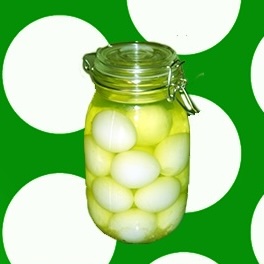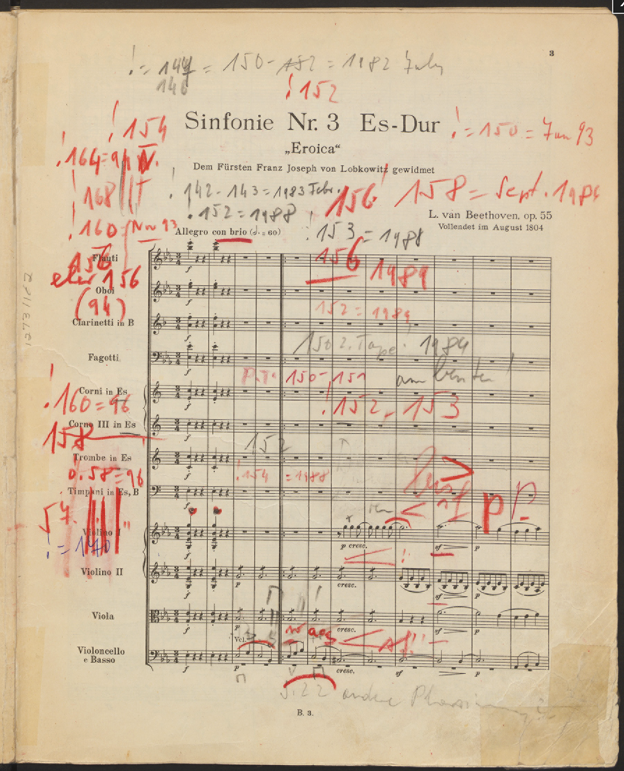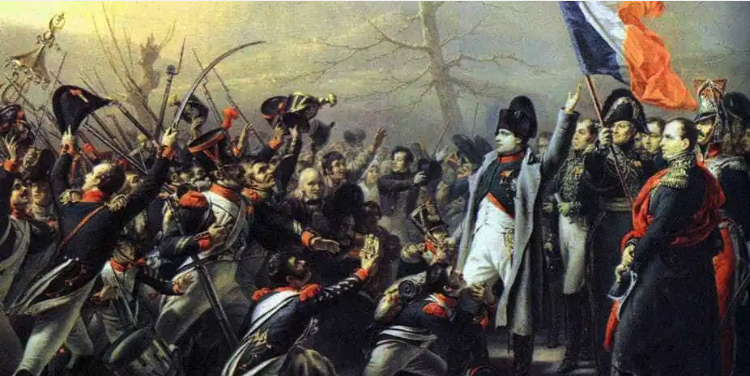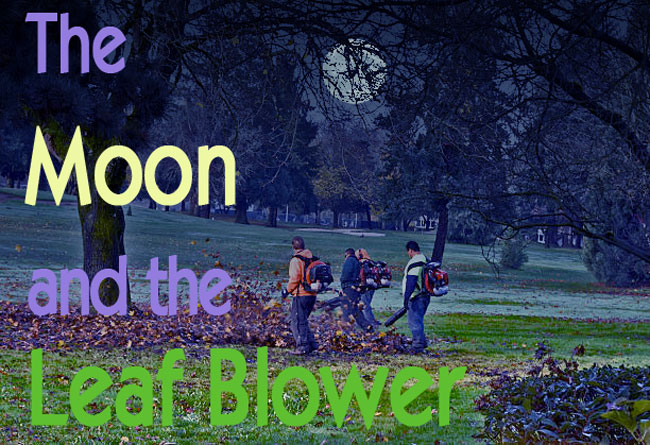My younger sister recently opened up to me with a story so brimming in pre-teen embarrassment, it took her decades to reveal. The source of her embarrassment revolved around our mother’s culinary antics, which later as we matured would form part of the family canon of hilarious stories. But as Julia described to me what happened the time when, for lack of anything suitable for a child’s lunch, a particular culinary substitution was made, her voice sounded a little ashen.

Dad scoured the fridge but could find none of the usual ingredients that go into an eight-year-old’s lunch. No baloney, no squishy Wonder bread, no sugary treats. All he could find were some pickled eggs pressed tightly in a large mason jar. I don’t remember if we really had lunchboxes (we were much too Bohemian for that) but if a lunchbox were involved, Julia would certainly not have had one of those Cinderella lunchboxes, but instead would have had a horse-themed lunchbox. Julia loved animals and would later own a horse, but as far as I remember she never pined to be a princess or participate in any sorts of those girlie things. Dad plopped two pickled eggs into her lunchbox and patted Julia out the door with some well-intended words about having a good day at school.
Mother believed she was a free-spirit Bohemian stuck fighting the threat of being middle class, and she bucked conventional expectations wherever she could! This over-the-top approach effectively relegated us as proto latchkey kids—we theoretically had parents, but to a large extent we had to fend for ourselves. Even in those days, she rarely made it downstairs before noon. It usually fell upon dad to make lunches as he dashed out the door bound for work. Dad lacked mother’s artistic flair (not that flair is really a qualifier for putting school lunch in a bucket for a little girl).
These weren’t any ordinary pickled eggs, mind you. No. These particular pickled eggs were part of a fabulous creation dreamt up by mother who never ever did things by half measure. These particular pickled eggs were green and they had white polka-dots on them. How they came to be that way will be revealed later, but the purpose of these particular polka- dotted pickled eggs was an elaborate scheme of one-up-womanship to be perpetrated against a group of ladies with whom mother made annual pilgrimages to Ontario’s shrine of culture, The Stratford Shakespearean Festival. Of course, there were those plays to be seen, and there was also being seen among Ontario’s theatre-going elite, and yet the highlight for mother was the elegant ladies’ picnic. Their annual picnic was a terribly tasteful affair held al fresco in the park upon the shores of the meandering Avon River where long-necked swans dithered at the shore for crumbs while the ladies cooed and gossiped, lubricated by flowing bubbly. The ladies mother consorted with were the upper crust Forest Hill sort, so even by her own crushingly high standards, mother knew she had to dazzle. Even her food offerings had to be special, and for mother that meant not only delicious but visually stunning as well.
When tasked with what to make for dinner, dad would faithfully put together a sensible meal of perhaps a pork chop, some canned niblet corn, and a little apple sauce on the side all served with about as much imagination as you might find in a Swanson TV dinner. It was simple, practical, served quickly, and we loved it.
But mother—never one for moderation—insisted that dinner be beautiful or not at all. On the rare occasion when she did prepare dinner, her artistic aspirations would follow her down the stairs from her art studio and into the kitchen where, still smeared in oil paints, she’d toil for hours over excessively ornate meals, heedless of her children’s undeveloped pallets or indeed their hunger pains. I remember one meal where Julia slowly traced a line with her fork around the smear of blue on her chicken cordon bleu. “Never mind that, dear,” mother said, “it’s just a little aquamarine.”
Even on a school night, dinner would consist of elaborate delicacies like Bœuf Bourguignon or Coquille-Saint-Jacques—favourites from a cookbook called Cooking with Wine, which she did liberally. Dining by candlelight was more pragmatism than elegance—her attempt to shroud imperfections in romantic gloom. All our pleading of hunger was to little avail; dinner seldom appeared before nine o’clock, and when it did, it was cold or burnt, or both. Late dining was less about fine dining and more about the quantity of wine that bypassed the recipe entirely and went directly into the cook.
In Stratford-upon-Avon, when mother was with her elegant Forest Hill mavens festooned in pearls and tippling from their glasses of champagne, she was free from all that domestic mediocrity. Yet despite the conviviality, there was an undertone of competitiveness she had to contend with too. While we lived in a nice house on a nice street, we lacked a family cottage in the Kawarthas as these more upscale ladies did, and she could only listen and dream when the ladies recounted their trips to Europe. Other than bald-faced fabrications about our father’s financial achievements (lies, all lies) or our progress in school (deplorable), she could only go on her culinary contributions to stand out. Last year’s Scotch eggs had been such a thundering hit that this year she was determined to find a way to make pickled eggs even more fabulous. The original recipe pickled eggs consisted of simply soaking hardboiled eggs in a mason jar full of vinegar and spices. But for a woman with an eye for colour, plain old pickled eggs would impress no one, least of all the Stratford-bound ladies. That’s when she got the idea to throw a little food colouring into the pickling mix. She chose green, not out of envy I’m sure, and certainly not as some drole Dr. Suess reference, (but then, you never know, she may having been having the ladies on with this one). More likely, green was chosen purely for its wholesome reference to nature.
Into the mason jar went the boiled eggs, the vinegar, the spices, and just enough green food colouring to give them an esthetically pleasing emerald hue. What she didn’t know—and it would become family legend in time—was that, owing to the force of the eggs pressing against the sides of the mason jar and each other, the food colouring imperfectly dyed the eggs leaving great white polka-dots at the pressure points.
Into Julia’s lunchbox went a couple of those precious pickled polka-dotted beauties and out the door went the unsuspecting Julia. Now, ladies who lunch have ways of being cruel to one another with such artistry that it’s hardly even detectible, but nine-year-old school girls have learned no such tact. I, too, remember those little girls in their pastel Lucy van Pelt dresses sitting in a clutch at a corner of the lunchroom looking for a weak kid to pick on. They all had normal baloney sandwiches made with squishy white Wonder bread, which had been prepared and packed by their mothers the night before. You know, very orderly. In walks Julia, innocent as a daisy, with her lunchbox and its damning contents. It’s conceivable that she didn’t even know what dad had thrown into the lunchbox—otherwise, she might have opted for hunger over lunch that day.
As Julia tells the tale, when she opened her lunchbox and pulled out a polka-dotted pickled egg—and then another—the lunchroom erupted in squeals of laughter. Her worst fears were confirmed. Any hopes of joining that clique of girls—or indeed having any friends at that school henceforth—were dashed. The girls promptly condemned Julia as weird and they made sure it stuck. Julia came home in tears of humiliation. Dad was dumbfounded and mother annoyed at the loss of two of her precious eggs. Neither parent could perceive Julia’s predicament and so the story went underground. And maybe that’s where resilience begins—not in grand moments but in lunchrooms, with a quiet girl, a horse-themed lunchbox, and two green polka-dotted eggs.
—Jason Hall ©2025











